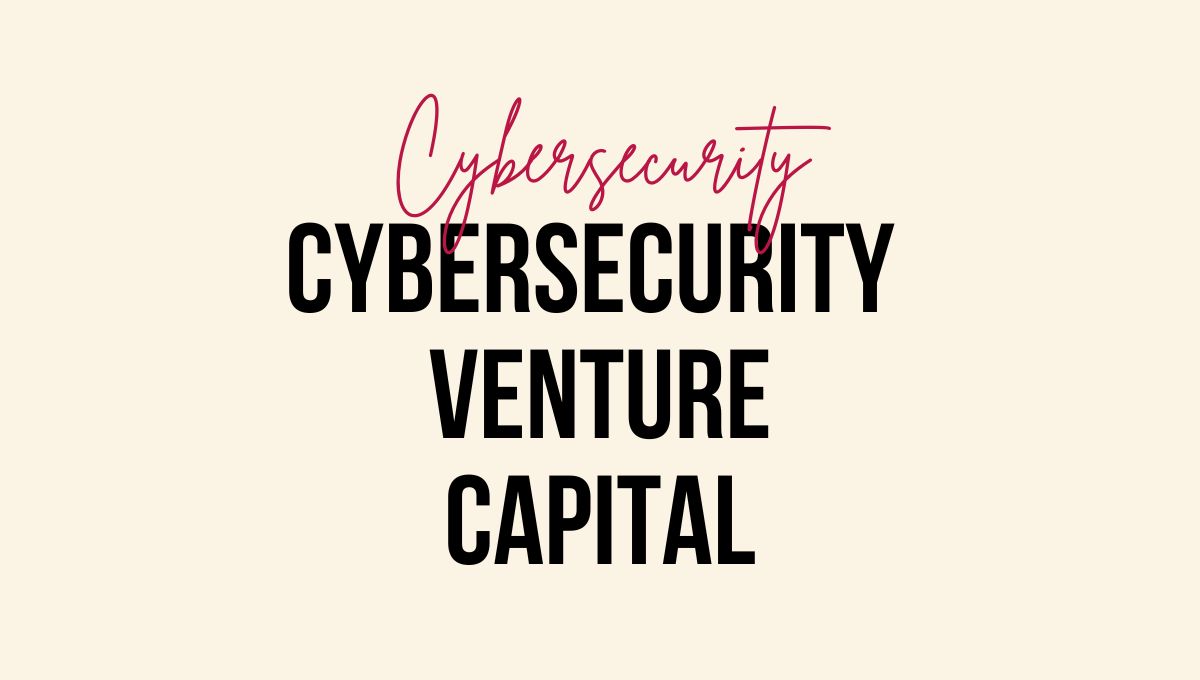Cybersecurity
How Can Cyber Insurance Redefine Cyber Security?
Published
5 years agoon
By
Ally LermanCybersecurity is at a constant threat. Evolving cyber-crime and malware are making it hard for the cybersecurity industry to hold its stance. The uncertainty of protecting customers from potential threats is also looming large. The frequency at which cyber breaches are occurring has made it clear that there is no such business that is safe from such a malicious attack. Cybersecurity of a small-sized firm to a large-sized company is only hanging by a thread. Enterprises are demanding cyber coverage, and it is where cyber insurance can play a major in redefining cybersecurity.
Cyber risk insurance is a vital option in such situations. When cybersecurity seems to fail, insurance plans can come to the rescue. We have discussed below a few ways in which cyber coverage can redefine online security. However, before proceeding, it is crucial to understand what are the common types of cyber-crimes.
What Are Common Cyber-crimes?
Every organization is vulnerable to cyber threats, even if they are highly secured. Although there are numerous types of risks out there, the most common ones to be aware of are:
● Malware
It is a malicious software that gets into your systems either through a link sent in your email or downloadable software. Once it is in your device, it aids hackers to spy on you. A famous type of malware is a ransomware, which intends extortion by denying you access to your systems.
● Hacking
A hacker can hack your systems to acquire its functions. Hacking can be done through various processes, and its sole aim is to steal the most sensitive data available in your systems for malicious purposes.
But what has led to the rise of such cyber-crimes. Let us take a brief look at it.
Reasons Behind Rising Cyber-crimes
Several evolving reasons has led to the rise in cyber threats such as experimenting hackers, vulnerability, etc. but some of the evident ones are:
● Exposure
There is a lot of code available on various platforms that can be used for such purposes. The free accessibility of such codes and evolving software have made exploitation opportunities possible.
● Hackers
One of the advantages a hacker has is that it has no identity. It masks it so well that it has no fear of getting caught. They find loopholes in every system to make their malicious intent work. Hackers often accomplish their crimes across borders, which makes it difficult for enforcing the law.
● Innovation
Innovation is the key to everything for hackers. They keep improving and improvising their techniques so that they do not fall short of ways to intrude into others’ privacy. Cybersecurity fails here a little, which gives hackers an edge in such situations.
What Is The Solution?
Cyber risks are an outcome of mainly two reasons. First, the cybersecurity providers’ inability to assure their solutions’ effectiveness. The second reason is that it is impossible to predict the impact of the breach accurately. Hence, the failure to determine the cost or effect of the cyber strategy. Then what is the solution?
Well, here comes cyber risk insurance at play. It has the potential to cover up where cybersecurity fails. You may ask how. There are three reasons for it, and they are:
1. Motive
In the end, the insurance company and the insured’s goals are the same, which is not to fall prey to cyber-attacks. The policyholder does not want to be breached, and the insurer does not want to payout. Preventing a cyber-attack is advantageous for both parties.
2. Access To Information
With cyber-crimes increasing, businesses seek more cyber coverage from being robbed of their sensitive information. And as the cyber insurance industry grows with the increase in demand, insurance companies also accumulate more data on the go. This information can be used to minimize cyber threats.
3. Leverage
With the help of the above two factors, cyber insurance can help redefine cybersecurity. Once these companies are able to comprehend cyber risks, they can adopt best practices through financial incentives. Thus, insurances aim to reduce risks, minimize cyber breaches, and seek better offerings to their insureds.
Conclusion
It is not a new thought that cyber insurance can someday redefine cybersecurity, as the former has better assurance to the victims of cyber-attacks. People are now seeking cyber coverage more than cybersecurity solutions, which is crucial evidence that the time has come that cyber insurance has the capability of redefining cybersecurity. We hope we have been able to make you understand the importance of cyber risk insurances.

Tech products reviewer, gadget explorer, blog writer.

You may like
Business Solutions
Automotive IDS (Intrusion Detection Software): Safeguarding the Future of Connected Vehicles
Published
4 months agoon
January 21, 2025By
Dev Dev
The evolution of connected vehicles, autonomous driving systems, and over-the-air (OTA) updates has transformed the automotive industry into a high-tech environment. While these advancements offer numerous benefits, they also introduce new cybersecurity vulnerabilities. As modern vehicles become more complex and interconnected, the need to protect them from cyber-attacks becomes ever more urgent. One of the critical solutions to address these threats is the integration of Automotive Intrusion Detection Software (IDS Automotive).
Automotive IDS is designed to monitor vehicle systems in real-time, detect malicious activities, and respond to potential cybersecurity threats. In an era where vehicles are increasingly targeted by cybercriminals, an effective IDS plays a pivotal role in safeguarding not just the vehicle’s software and hardware, but also the safety of drivers, passengers, and other road users.
What is Automotive Intrusion Detection Software (IDS)?
Intrusion Detection Software (IDS) is a security technology that monitors and analyzes the activities of a system to detect signs of unauthorized access or suspicious behavior. In the context of automotive cybersecurity, IDS focuses on identifying and preventing attacks on a vehicle’s electronic control units (ECUs), communication networks, and other critical systems.
An automotive IDS typically operates by detecting irregularities in vehicle behavior that could indicate a cyberattack, such as unusual data traffic, unauthorized commands, or abnormal sensor readings. It analyzes the vehicle’s internal network traffic, such as Controller Area Network (CAN) bus, Ethernet, and FlexRay protocols, for any signs of intrusion or tampering.
How Automotive IDS Works
Automotive IDS operates in much the same way as traditional intrusion detection systems used in IT security, with some key differences specific to the automotive context:
1. Data Monitoring:
Automotive IDS continuously monitors the internal communication networks of a vehicle, including the CAN bus, Ethernet, and other communication channels. These networks serve as the backbone for data transmission between the vehicle’s various ECUs (e.g., engine control, infotainment, braking, steering), sensors, and actuators.
2. Anomaly Detection:
IDS systems typically use anomaly-based detection techniques to identify abnormal behavior in vehicle communication patterns. By establishing a baseline for “normal” vehicle behavior, the IDS can flag any activity that deviates from this baseline. Examples of anomalies could include unexpected changes in sensor readings, unusual messages between ECUs, or abnormal network traffic patterns that may indicate a cyberattack.
3. Signature-Based Detection:
Some IDS systems also use signature-based detection, which compares vehicle behavior against known attack signatures or pre-defined patterns of malicious activity. These signatures are updated regularly to reflect emerging threats, ensuring that the IDS can detect even the most recent attack methods.
4. Response Mechanisms:
Upon detecting a potential intrusion or anomaly, the IDS can trigger predefined responses to mitigate the threat. This may involve logging the event for further investigation, sending alerts to the vehicle’s central control unit, or taking immediate action such as isolating affected ECUs or triggering a failsafe mode to ensure safety.
5. Integration with Vehicle Security Systems:
An automotive IDS is typically integrated with other vehicle security systems, such as firewalls, secure communication protocols, and encryption mechanisms. This multi-layered security approach enhances the vehicle’s ability to prevent, detect, and respond to cyber threats.

Why is Automotive IDS Important?
The importance of Automotive IDS cannot be overstated in today’s connected car ecosystem. The integration of increasingly sophisticated technologies, like Advanced Driver Assistance Systems (ADAS) and autonomous driving features, has expanded the attack surface for potential cybercriminals. Here are several reasons why Automotive IDS is crucial:
1. Protecting Critical Vehicle Functions:
Modern vehicles are highly dependent on complex electronic systems to manage safety-critical functions, such as braking, steering, and acceleration. A successful cyberattack on these systems could have catastrophic consequences. Automotive IDS helps prevent unauthorized access to these systems by detecting and responding to potential threats in real-time.
2. Early Detection of Cyber Threats:
Intrusion detection software is one of the best tools for identifying cyberattacks before they can do significant damage. Whether it’s a remote hacker attempting to gain control of a vehicle’s systems or a local attacker trying to exploit vulnerabilities, an IDS can alert the vehicle’s control systems to the presence of an attack, enabling timely countermeasures.
3. Mitigating Risks to Privacy:
Connected vehicles gather and share vast amounts of data, from GPS locations to personal preferences. Cybercriminals may target these data streams to compromise users’ privacy. Automotive IDS helps prevent data breaches by identifying suspicious activity on the vehicle’s communication channels.
4. Real-Time Monitoring and Response:
In contrast to traditional vehicle security solutions, which may only provide post-event analysis, IDS operates in real-time. This means that a vehicle’s security systems can immediately detect and respond to an ongoing attack, minimizing the potential damage and ensuring that the vehicle remains operational and safe.
5. Compliance with Regulatory Standards:
The automotive industry is subject to increasing regulatory scrutiny related to cybersecurity, including standards like ISO/SAE 21434 for automotive cybersecurity and the UN R155 regulation for vehicle cyber resilience. Implementing Automotive IDS can help manufacturers meet these regulatory requirements and demonstrate their commitment to vehicle safety and security.
Types of Automotive IDS
There are two main types of IDS that can be used in automotive cybersecurity:
1. Host-Based IDS (HIDS):
Host-based IDS operates on individual ECUs or control units within the vehicle. These systems monitor the specific behaviors of the vehicle’s hardware and software to detect intrusions. HIDS can track file integrity, system configurations, and application behavior, providing detailed insights into any changes that could indicate an attack.
2. Network-Based IDS (NIDS):
Network-based IDS monitors the vehicle’s communication networks, such as CAN and Ethernet, to detect unauthorized or suspicious network traffic. NIDS analyzes the flow of messages between ECUs, sensors, and other vehicle components, looking for signs of malicious activity or abnormal data exchanges.
In many cases, an automotive cybersecurity system will use a combination of both HIDS and NIDS to provide comprehensive coverage against cyber threats.
Challenges in Implementing Automotive IDS
While the benefits of automotive IDS are clear, the implementation of these systems comes with its own set of challenges:
1. Complex Vehicle Architectures:
Modern vehicles contain a vast array of ECUs, sensors, and communication networks, each with unique security needs. Designing an IDS system that can effectively monitor and protect all these components is complex and requires integration with the vehicle’s entire electronic ecosystem.
2. Real-Time Processing:
Given the critical nature of vehicle operations, IDS systems must be able to detect threats in real-time without causing delays or performance degradation. This requires high processing power and advanced algorithms capable of handling large amounts of data quickly and efficiently.
3. False Positives:
One of the challenges with any IDS system is minimizing false positives — situations where benign activity is mistakenly flagged as malicious. In automotive contexts, false positives can be particularly problematic, as they may cause unnecessary disruptions to vehicle operations or trigger incorrect safety measures.
4. Evolving Cyber Threats:
The cybersecurity landscape is constantly evolving, with new attack methods and vulnerabilities emerging regularly. Automotive IDS systems need to be updated continuously to stay ahead of these threats. This can require ongoing development and support to ensure that vehicles remain secure over time.
As the automotive industry embraces the future of connectivity and automation, the need for robust cybersecurity measures has never been more critical. Automotive Intrusion Detection Software (IDS) serves as a vital component in safeguarding vehicles from the growing threat of cyber-attacks. By detecting and mitigating potential intrusions in real-time, IDS helps protect not only vehicle safety and privacy but also the reputation of manufacturers in an increasingly security-conscious market. As automotive technology continues to advance, the role of IDS in ensuring the integrity of connected and autonomous vehicles will only become more important.
Cybersecurity
Israeli Cybersecurity Investments: Fueling Innovation and Growth
As cyber threats continue to increase in frequency and complexity, the need for robust cybersecurity measures has become more pertinent than ever. To combat these threats, companies worldwide are investing heavily in cybersecurity technologies and services. In recent years, Israel has emerged as a leading hub for cybersecurity innovation and expertise, attracting significant venture capital investments in the sector. In this blog post, we will explore how cybersecurity venture capital investments are fueling innovation and growth in Israel’s cybersecurity industry, and why this trend is likely to continue in the years ahead. We will also examine some of the most promising Israeli cybersecurity startups that have attracted significant investments and are poised to make a significant impact in the global cybersecurity market.
Published
2 years agoon
June 24, 2023By
Adva
Israel has emerged as a global hub for cybersecurity, attracting significant investments and establishing itself as a leader in the field. The country’s thriving cybersecurity ecosystem is supported by a robust network of early-stage venture capital (VC) firms that fuel innovation and drive the growth of cybersecurity startups. In this article, we will explore the landscape of Israeli cybersecurity investments and the role played by early-stage venture capital.
Israel’s Reputation as a Cybersecurity Powerhouse
Israel has gained a well-deserved reputation as a cybersecurity powerhouse, known for its cutting-edge technologies and expertise. This reputation is bolstered by a combination of factors, including a strong focus on cybersecurity education, close collaboration between the military and the private sector, and a culture of innovation and entrepreneurship.
The Role of Early-Stage Venture Capital (VC) in Israel
Early-stage venture capital firms play a vital role in the Israeli cybersecurity ecosystem. These firms provide crucial funding, guidance, and support to cybersecurity startups in their early phases of development. By investing in promising companies, early-stage VCs help nurture innovation, accelerate product development, and enable startups to scale their operations.

Investments in Israeli Cybersecurity Startups
Israeli cybersecurity startups have attracted significant cybersecurity venture capital investments from both local and international investors. The country’s reputation for producing groundbreaking technologies and the success stories of previous cybersecurity startups have made it an attractive destination for venture capital firms and strategic investors.
Early-stage venture capital firms in Israel actively seek out cybersecurity startups with disruptive technologies and strong growth potential. These firms not only provide financial support but also leverage their extensive networks and industry knowledge to help startups navigate challenges, identify market opportunities, and connect with potential customers and partners.
Investment Trends and Areas of Focus
The investment landscape in Israeli cybersecurity is characterized by a diverse range of areas of focus. Some startups specialize in network security, while others focus on cloud security, application security, or IoT security. The growing demand for solutions in areas such as artificial intelligence (AI), machine learning (ML), and data protection has also attracted significant investments.
Q&A Section:
What are some notable succes
s stories in Israeli cybersecurity investments?
Israel has seen several notable success stories in the cybersecurity realm. Companies like Check Point Software Technologies, CyberArk, and Palo Alto Networks have emerged as global leaders in cybersecurity, with significant market presence and successful IPOs. These success stories serve as inspiration for aspiring cybersecurity startups and attract further investments in the industry.
How does the Israeli government support cybersecurity investments?
The Israeli government recognizes the strategic importance of cybersecurity and actively supports the industry. It provides various initiatives, grants, and tax incentives to promote research and development in cybersecurity. Additionally, the government collaborates with industry stakeholders to foster partnerships, encourage international collaborations, and promote Israel as a global cybersecurity hub.
Are there any unique challenges or opportunities for early-stage venture capital firms in Israel’s cybersecurity sector?
While the Israeli cybersecurity sector offers immense opportunities, it also comes with unique challenges. One challenge is the fierce competition to identify and invest in the most promising startups. With a vibrant ecosystem and a steady stream of innovative companies, early-stage venture capital firms need to carefully evaluate investment opportunities and build strong relationships with entrepreneurs to secure deals. However, the abundance of talent, strong support systems, and access to international markets make Israeli cybersecurity investments an exciting prospect for early-stage VCs.
Cybersecurity
Cybersecurity venture capital
There are many ways to guard against cyberattacks, but as the number of malicious programs and attacks continues to grow, more companies are investing in cybersecurity venture capital. Find out what some of the benefits of investing in this type of funding is, and how you can find a company that will be a good fit for your company’s needs.
Published
3 years agoon
November 7, 2022By
Marks StrandTechnology has revolutionized how we live, and work, and nowhere is that more apparent than in the world of cybersecurity. In just a few short years, cybersecurity has gone from a niche to a booming sector, with startups and established companies vying for a piece of the pie. One of the key drivers of this growth has been venture capital investment. Cybersecurity venture capitalists have poured billions of dollars into promising startups, helping them to bring their products to market and scale their businesses. In this blog post, we will look at the role of venture capital in the cybersecurity industry and some of the most prominent investors in the space. We will also explore some of the challenges that startups face when trying to raise funding and how VCs are helping to address these issues.

cybersecurity venture capital firms
Several cybersecurity venture capital firms invest in early-stage companies. These firms typically focus on companies developing innovative technologies to address the growing cyber security threats faced by businesses and individuals.
Some of the leading cybersecurity venture capital firms include:
* Accel Partners
* Bessemer Venture Partners
* Google Ventures
* Kleiner Perkins Caufield & Byers
* New Enterprise Associates
* Sequoia Capital
* Elron Venture
These firms have invested in several well-known cybersecurity startups, including:
* CrowdStrike: A leader in endpoint security, CrowdStrike has raised over $200 million from investors such as Accel Partners, Google Ventures, and Warburg Pincus.
* Palo Alto Networks: A provider of network security solutions, Palo Alto Networks has raised over $1 billion from investors such as Sequoia Capital, Fidelity Investments, and Mayfield Fund.
* Symantec: A global leader in cyber security, Symantec has raised over $5 billion from investors such as TPG Capital, Silver Lake Partners, and Bain Capital.
Who is the best venture capitalist
As the number of cyberattacks continues to grow, more companies are looking for ways to protect themselves. One way to do this is to invest in cybersecurity venture capital. But who is the best venture capitalist?
There are a lot of different factors to consider when it comes to choosing a venture capitalist. One crucial factor is track record. You want to look for a venture capitalist with a proven track record of investing in successful companies. Another factor to consider is experience. Look for a venture capitalist who has experience working with startups in the cybersecurity industry.
Another essential factor to consider is the amount of money that the venture capitalist has to invest. You want to seek a venture capitalist with deep pockets who can fund your startup to grow and scale.
Finally, you want to look for a venture capitalist who shares your vision for the company. This is someone who believes in your product or service and wants to help you grow your business. When you find a venture capitalist who meets all of these criteria, you know you’ve found someone who can help take your startup to the next level.
Cybersecurity VC Funding Rolls On In 2022
As we move into the new year, it’s clear that cybersecurity is still a top priority for businesses and organizations worldwide. And as such, venture capitalists are still pumping money into the space.
In fact, according to CB Insights, VC funding for cybersecurity startups hit a new high in 2020, with $10.9 billion invested across 437 deals. And they believe that this trend will continue in 2021 and beyond.
If you’re considering starting a cybersecurity company or are already running one and looking for funding, it’s worth considering the VC route. Here are a few things to keep in mind:
- There’s a lot of interest in cybersecurity right now: As mentioned above, VCs are still very interested in investing in cybersecurity companies. This is because there’s a growing awareness of the importance of cybersecurity and an increasing number of cyber threats.
- You need a strong team: As with any startup, having a solid team is essential for success. But it’s critical to cybersecurity because investors want to see that you have the right mix of technical and business skills. They also want to know that your team is passionate about what they’re doing and that they have the drive to succeed.
- Your product must be differentiated: With so many companies competing for attention in the cybersecurity space, your product must stand out from the crowd. It

Geneo Glam: Skin Firming Treatment for Radiant, Youthful Skin

H.265 miniature UAV encoders: A comprehensive Overview

IEEE 802.11p and V2X Communication: Enabling Smarter, Safer Roads
Trending
-
Marketing & Analytics2 years ago
A Complete Guide To HubSpot’s New B2B Marketing, Sales Hub, and Prospecting Tool
-
3D Technology2 years ago
3D Scanner Technology for Android Phones: Unleashing New Possibilities
-
Marketing & Analytics2 years ago
How SMS Services And Software For Bulk SMS Sending Can Help Your Business Grow
-
3D Technology2 years ago
Mobile 3D Scanners: Revolutionizing 3D Scanning Technology
-
3D Technology2 years ago
3D scanning technologies and scanning process
-
Business Solutions1 year ago
Understanding A2P Messaging and the Bulk SMS Business Landscape
-

 Business Solutions1 year ago
Business Solutions1 year agoThe Power of Smarts SMS and Single Platform Chat Messaging
-

 Automotive2 years ago
Automotive2 years agoDSRC vs. CV2X: A Comprehensive Comparison of V2X Communication Technologies



